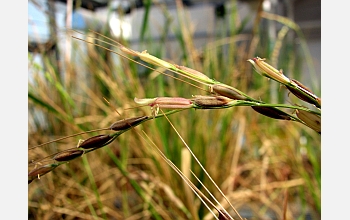Kennedy Omenda is a freelance journalist who has written a very interesting article over at The African Executive. Africa’s Agriculture Can Adapt to Climate Change suggests that forecast changes to rainfall patterns, temperature and the like could actually offer Africa a chance for development. Omenda refers to farmers changing their crops and methods and people changing their diets, and benefits that will arise from increased trade and other structural improvements.
It is not a “bad†change after all, but a good opportunity for farmers to embrace new technologies and researchers to brainstorm on products that will suit the various climate patterns. Adequate infrastructure, access to markets and credit will enhance agricultural development and food security while building resilience to future climate change.
I am not absolutely persuaded, I have to admit. Maybe necessity will drive the changes needed, but, to take one example, while farmers in currently wet regions will need to grow crops that can grow with less water, what will farmers in currently dry regions, some of which are going to dryer, grow?
Fascinating aside: Africa “has about 1,150 world weather watch stations. That is one per 26,000 square kilometers—or eight times lower than the minimum density recommended by the World Meteorological Organization”. Maybe climate change will boost investment in weather forecasting that will be directed to farmers rather than pilots and soldiers.
On balance, I think the article is a sort of pro-business-as-usual, but I’d love to hear contrary views.
 The National Science Foundation in the US has
The National Science Foundation in the US has